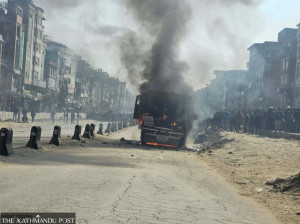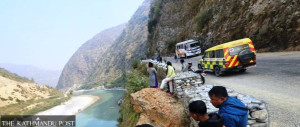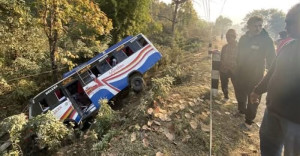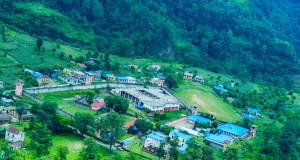Bagmati Province
Dr Govinda KC moves Supreme Court seeking review of its verdict on granting affiliation to B & C College
Surgeon claims that the division bench breached its jurisdiction while ruling in favour of the medical college.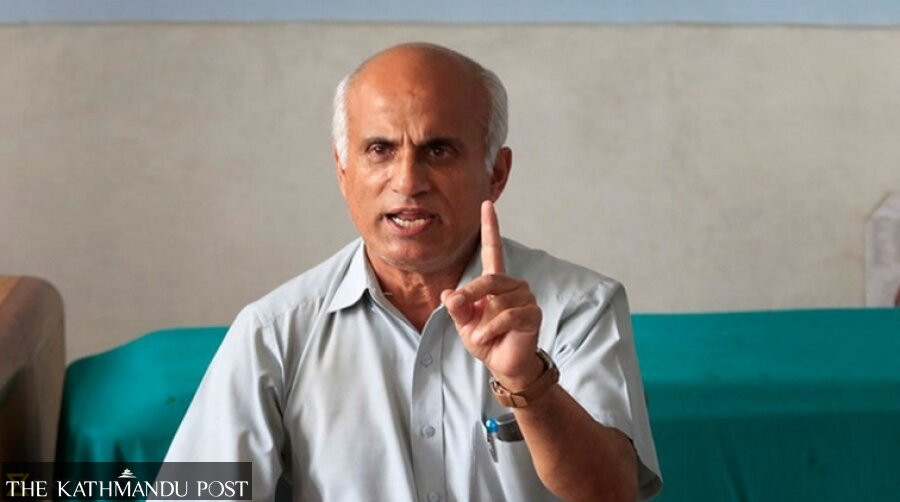
Post Report
Dr Govinda KC, an orthopaedic surgeon, backed by Shahi Bikram Karki, has moved the Supreme Court with a petition demanding a review of its verdict to grant affiliation to the Birtamod-based B & C Medical College, owned by campaigner Durga Prasai.
Their petition, which claims the verdict contradicts the Supreme Court’s precedence and established judicial principle, is being considered. After a minute of study, the court administration will decide whether to register or scrap it. In March, a division bench of the top court cleared the legal hurdle to the medical college launching the MBBS programme.
However, Dr KC has presented different claims to argue that the ruling was a breach of the court’s jurisdiction. In July 2020, Prasai filed a writ petition against the commission and the varsity in the top court, demanding its intervention. He had claimed that it was an injustice to bar his college, which fulfils all the criteria, from affiliation. In one of his demands, Prasai had claimed that Rule 7 of the Medical Education Regulation contradicts the constitution. The two-member bench has taken it as a reference to allow affiliation.
However, Dr KC claims that only the Constitutional Bench can test whether any Act promulgated by Parliament or a regulation passed by the government exercising its delegated authority is in line with the constitution. “However, the division bench entered into the matter, creating a situation of coram non judice, which is a breach of jurisdiction,” states a claim in the petition.
In October that year, Prasai moved the court with another petition saying the colleges that have set up infrastructure as prescribed by the government after getting a letter of intent cannot be barred from providing medical education. Countering his petition, an individual, Shashi Bikram Karki, moved the court, saying Prasai’s college should not be affiliated.
Following long hearings, a division bench of justices Kumar Chudal and Saranga Subedi had directed the relevant authorities not to stop affiliation to the B & C Medical College if it fulfils the requirement.
The college, which received the letter of intent from the Ministry of Education in 2014, had long been lobbying for the permission to run the MBBS programme. It has all the infrastructure needed to run the medical programme.
In June 2021, the Medical Education Commission, with consent from the university, had given a green signal for the affiliation. The commission, chaired by the then Prime Minister KP Sharma Oli, who was ex-officio chair of the commission, decided to grant the affiliation to the college once it fulfils the necessary legal procedure. Prasai was a CPN-UML leader at the time and enjoyed a good relationship with Oli. Previously, he was active as a Maoist.
The bonding with Oli, however, didn't last long. These days, Prasai is critical of Oli and the UML, and has launched a campaign to reinstate the Hindu kingdom.
The commission’s attempts to give affiliation to Prasai’s college had failed following strong protest from Dr Govinda KC, an orthopaedic surgeon. KC, with support from some educationists, has long been demanding radical reforms in the country’s medical education and health sector.
Dr KC and other activists have claimed that the latest decision to grant affiliation to B&C College is against the National Medical Education Act-2019, which Parliament endorsed to address the concerns of Dr KC. Clause 13 (6) of the Act says whatsoever is written in other clauses, no university would be allowed to grant affiliations to more than five medical colleges once the Act comes into implementation.
However, the clause contains a provision that says the Act doesn’t bar providing affiliation to a college located outside the Kathmandu valley that had received a letter of intent before the Act came into effect.
The B&C received the letter of intent in 2014, around five years before the Act came into effect.




 8.54°C Kathmandu
8.54°C Kathmandu





